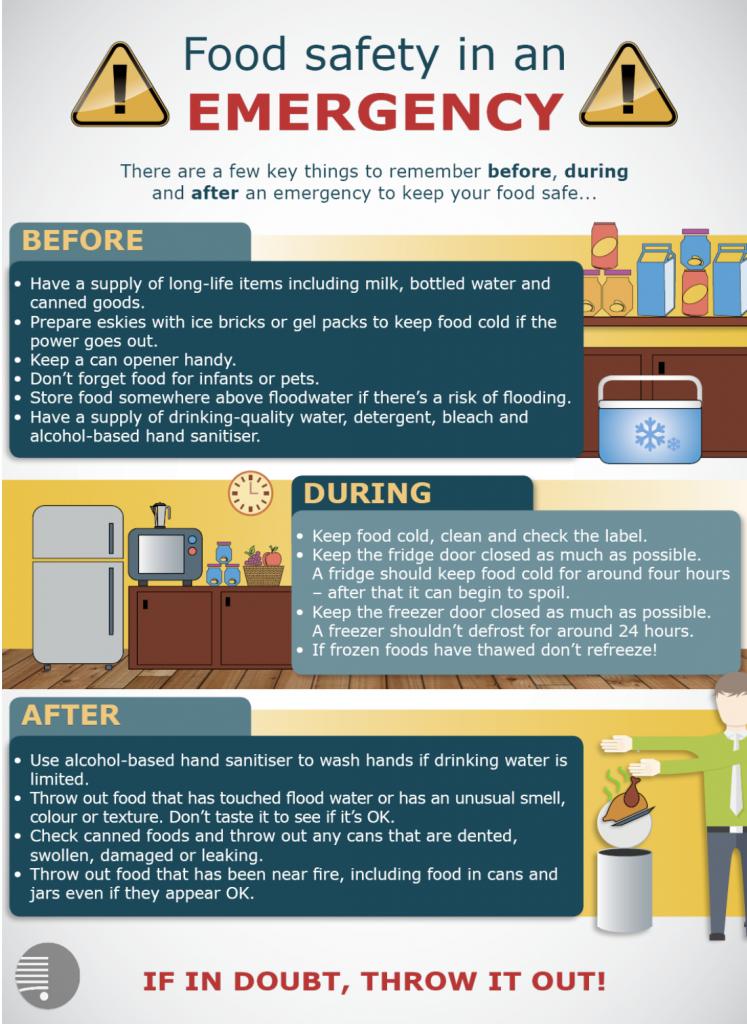
One of the dangers of a fire can be toxic fumes from burning materials. Chemicals used to fight the fire can also contain toxic materials. The heat from a fire can cause bacteria in food to multiply and grow so:
- throw out any food that has been near a fire, including food in cans and jars even if it appears ok as the heat can split seals and the outside of cans and jars can contaminate the food if opened
any raw food, or food in packaging such as cardboard, plastic wrap, screw-topped jars and bottles should also be thrown out - throw out food from a refrigerator as the refrigerator seal isn’t airtight, fumes can get inside
- wash cooking utensils exposed to fire-fighting chemicals in soapy hot water, then sanitise in 1 tablespoon of chlorine bleach per 2 litres of water and rinse.
Also follow your local council’s advice about drinking water which may have to be boiled. If you have power bring the water to a rolling boil which will kill any bacteria and allow to cool. If your council advises that the water supply has been contaminated with chemicals you’ll need to use bottled water.If you live in a smoke affected area and grow your own vegetables wash them well before eating.
There are a few things to remember before, during and after and emergency to keep your food safe
Before
-
Have a supply of long-life items including milk, bottled water and canned goods.
-
Prepare eskies with ice bricks or gel packs to keep food cold if the power goes out.
-
Keep a can opener handy.
-
Don’t forget about food for infants or pets.
-
Store food somewhere above floodwater if there’s a risk of flooding.
-
Have a supply of drinking-quality water, detergent, bleach and alcohol-based hand sanitiser.
During
-
Keep food cold, clean and check the label.
-
Keep the fridge door closed as much as possible.
-
A fridge should keep food cold for around four hours – after that it can begin to spoil.
-
Keep the freezer door closed as much as possible.
-
A freezer shouldn’t defrost for around 24 hours.
-
If frozen foods have thawed don’t refreeze!
After
-
Use alcohol-based hand sanitiser to wash hands if drinking water is limited.
-
Throw out food that has touched flood water or has an unusual smell, colour or texture. Don’t taste it to see if it’s OK.
-
Check canned foods and throw out any cans that are dented, swollen, damaged or leaking.
-
Throw out food that has been near fire, including food in cans and jars even if they appear OK.
If in doubt, throw it out!
For more information on food safety during and emergency, please visit state and territory website below:
- Food Standards Australia New Zealand
- New South Wales Food Authority
- Queensland Health
- Victorian Department of Health and Human Services
- Australian Capital Territory Health
- South Australian Health
- Northern Territory Health
- Western Australian Health
- Tasmanian Department of Health and Human Services: floods | returning home after a bushfire
